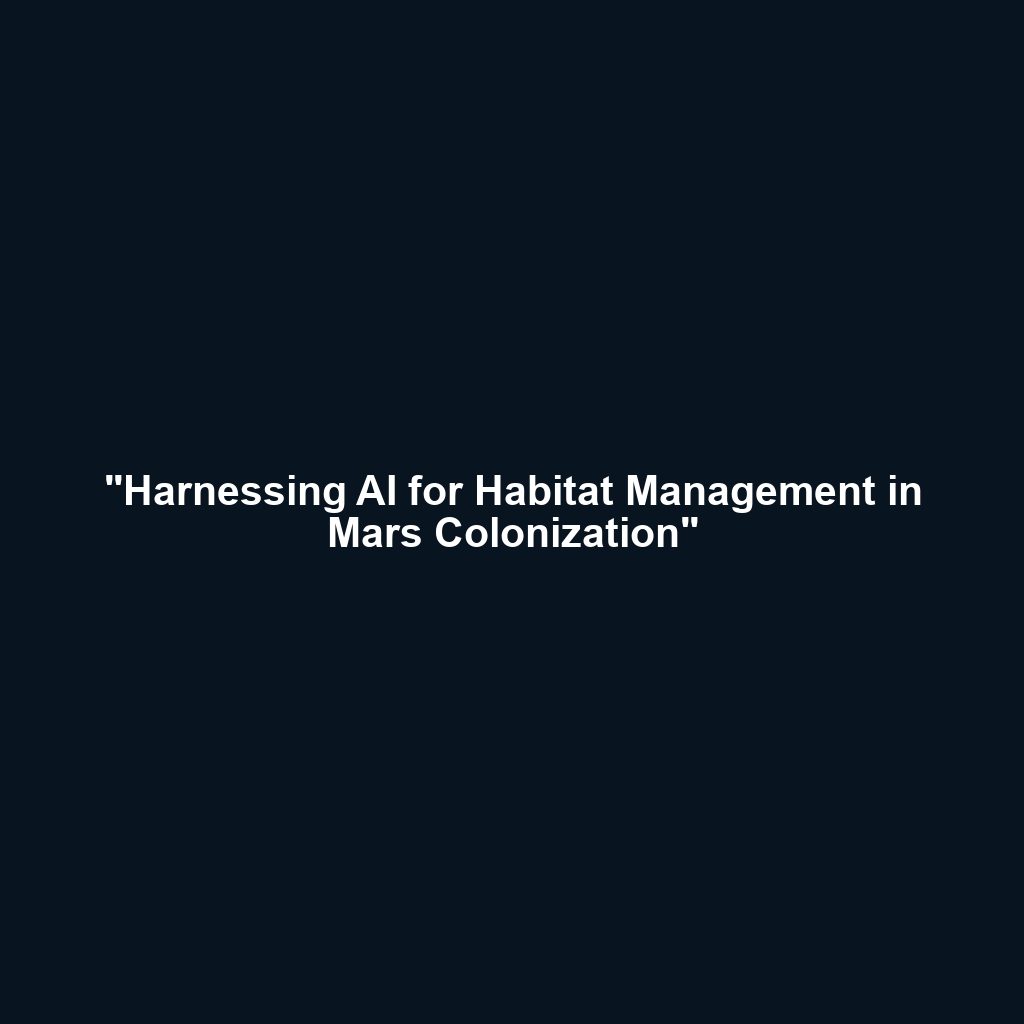AI in Habitat Management: Paving the Way for Colonizing Mars
As humanity stands on the verge of becoming a multiplanetary species, the importance of utilizing advanced technologies like AI in Habitat Management cannot be overstated. In the context of Colonizing Mars, AI-driven systems can efficiently manage resources, ensure life support, and maintain overall habitat conditions. These AI systems will not only enhance the sustainability of Martian habitats but also significantly minimize risks to human life, making the dream of a Martian colony more achievable.
Key Concepts
Understanding AI in Habitat Management requires a grasp of several key principles that facilitate effective resource allocation and environmental control. Some of the major concepts include:
- Resource Management: AI algorithms monitor water, food, and oxygen supplies, optimizing their use to support human life on Mars.
- Life Support Systems: AI regulates air quality, temperature, and humidity, ensuring that habitat conditions meet the necessary standards for survival.
- Environmental Monitoring: Continuous assessment of the Martian environment allows for proactive adjustments to mitigate risks such as radiation exposure and dust storms.
Applications and Real-World Uses
AI systems are already being piloted and implemented in terrestrial applications that resemble the challenges of Colonizing Mars. Here are significant applications of AI in Habitat Management:
- Smart Greenhouses: AI-powered systems regulate temperature and humidity for optimal plant growth, a crucial component of sustainable food production on Mars.
- Life Support Automation: Automated systems manage oxygen and carbon dioxide levels, making vital adjustments in real-time.
- Data Analytics for Habitat Maintenance: Advanced data processing models analyze habitat conditions and predict necessary maintenance, reducing failure risks.
Current Challenges
While the potential for AI in Habitat Management is significant, several challenges hinder its development and deployment in Colonizing Mars. Some of the key issues include:
- Data Limitations: The scarcity of reliable data from Martian environments makes it challenging for AI systems to train effectively.
- Technical Limitations: Current AI technologies must evolve to meet the extreme conditions and constraints of Mars.
- Integration Complexity: Seamless interfacing between AI systems and human operators poses design and operational challenges.
Future Research and Innovations
Looking ahead, significant innovations in AI for Habitat Management are anticipated to emerge, further impacting the colonization of Mars. Breakthroughs could include:
- Next-Gen AI Algorithms: Enhanced algorithms that leverage machine learning for predictive analytics are crucial for better resource management.
- Robotic Maintenance: Development of autonomous robots equipped with AI capabilities to maintain habitat conditions without human intervention.
- Interplanetary Communication Networks: Advanced communication systems supporting real-time data sharing among Mars colonies.
Conclusion
AI in Habitat Management represents a transformative approach to addressing the challenges of colonizing Mars. By efficiently managing resources and optimizing life support systems, AI can help ensure a sustainable and habitable environment on the Red Planet. As research and technology continue to evolve, investing in AI solutions will be essential for future exploration. To learn more about the intersection of technology and space exploration, consider exploring our analyses on future innovations in space technology and strategies for Mars colonization.
